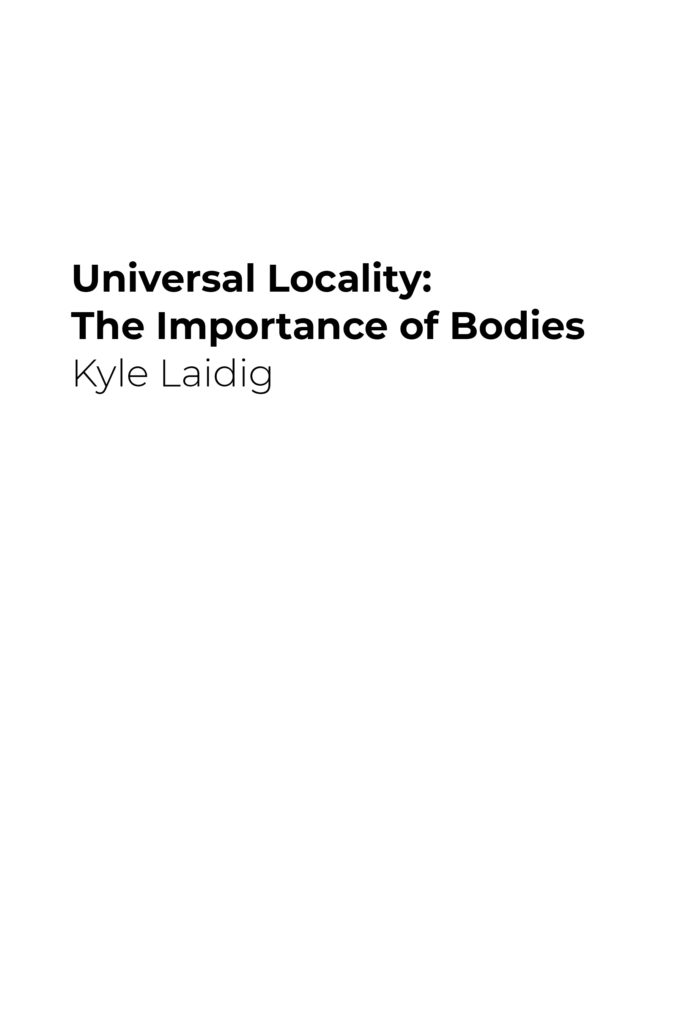
The transcendent object descending from on high—its glimmering surface blinds the gathered masses, prostrate to its desirous intangible form. The wilting lilies stand anew and launch into impassioned speech while the stoic silently weep, the children gaze longingly. Free at last, free at last—the network has come to save us from our abject containers, here at last to unite us in ways both bold and true. It has always been our unforgiving materiality which has divided us in the end. The limits of my reach always delimited by the wingspan of my fragile arms—my potential forever stunted by the limited volume within my meager chest. The internet as shiny ulysses, dripping with honey, shining like a thousand suns. A universal forum, the digital agora.
Behold the horrifying logic of the network. Ae are all equally different within its reticular spread, assumed to be perfectly the same—totally deracinated and utterly vulnerable to the accumulation of power. The resonance of true intensities—the machinations of which are cloaked by its undulating mesh. How may we re-orient ourselves as we are inundated from all sides, orifices engulfed with the poisonous “common fluid”? To put it plainly, where and how do we begin to assert ourselves within such a pernicious cycle?
The internet is a red herring. This is not to dismiss the accommodations it affords us—increased potential for communication and trade globally amongst other valuable capabilities. The internet did, in fact, allow for the emergence of new communities to emerge and opened up discussive spaces unavailable previously. It also “de- materialized” many functions of everyday life and therein lies the problem. The problem is not that the internet truly dematerializes the everyday or that it disembodies labor but rather that it hides the material conditions and mechanisms that allowed these functions to be enacted.
There lies beneath the surface of the ocean, creeping in obscurity between all continents, cables of unimaginable lengths. These cables are themselves the arteries of the internet, fiber optic cables that bring it stability and speed on a global scale. Similarly, the data that inhabits the internet is stored on web servers, in various locations all over the world. Behold, the internet has a body! Sever those cables, bomb those data centers and quickly the ineffable hydra of the “cloud” is vanquished. Of course, our aim is not to destroy the internet, but perhaps it is to dismantle capitalism and the fact of the internet’s fundamental locality and materiality may provide us with an operational model by which we may act in the present. If we can understand that the internet itself is bodied, what then can we understand about its true power? The network has an incredible potential for organizing dispersed beings. Think of the Arab Spring—what traction would it have gained had the protest been comprised only of texts 140 characters or less? It is when the immaterial network is embodied, transfigured onto the streets with fists and shouts, that a contemporary revolution becomes manifest.
Network capitalism is a red herring. This is not to say that late capitalism is not indeed increasingly powerful or dangerous. It is also not to say that late capitalism is not accelerating rapidly. What it is saying is that network capitalism is actually no different from your garden variety capitalism—that it operates on the same modality of pure exchange—the demand for complete sameness of all its constituent individuals or nodes. It is an incredibly successful red herring because it has recuperated our last great hope, that of multiculturalism. One would say that multiculturalism is the protest of total difference, the complete locality of individuals, and that, through the egalitarian proposal of the network, capitalism has swallowed that difference whole. Yet one must look more carefully at the kind of difference capital has seemingly ingested, the multiculturalism that it has absorbed is one wherein difference is countable, or reducible to the digital. This is not truly difference but rather the apprehension and knowability of total locality. This is not difference itself. Difference is not an income bracket or a rubric of ethnic inheritance. It is the undeniability of experience, the irrefutable dimensions of our coordinates upon the universe of things and events.
How then may we reconcile ourselves within the supposed immaterial framework of a global network and the materiality of our homes? Perhaps it begins by a two-part utterance. It is not to say, “think global, act local” but rather “act global, act local”. The problem with late capitalism is that it pushed locality to the far margins, making it only apprehendable on a totally local scale (as with various DIY movements). Simultaneously, it has increasingly cleared out the center, the public, as a viable space for asserting difference through var- ious modalities of policing (i.e. corporate security within Times Square). It is therefore our responsibility to assert ourselves as different by promoting locality within the global space—to maintain a fervent and specific sense of one’s “home” online. In tandem, we must also propose a type of universality within the regional. Organize a group show in your hometown (or in the woods for that matter) comprised of artists from around the world. The world is constituted of irreducible difference and the marching order is to see ourselves as not equally different but differently equal—that no one may be exchanged for another but that all must work to relate upon the grounds of our true commonality—the fact of our shared existence.
